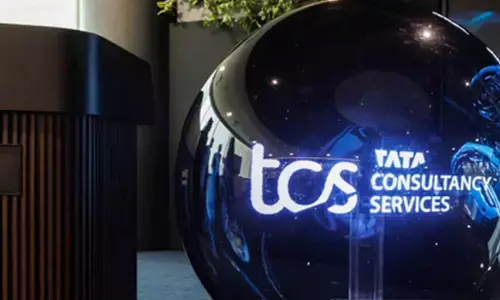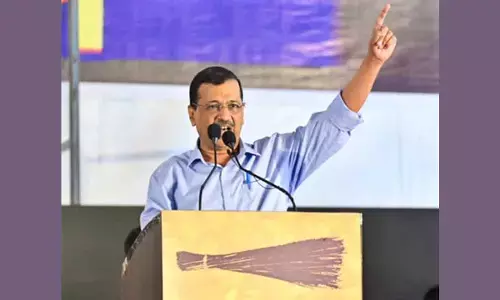Twitter's unique role in public discourse

Elon Musk
Elon Musk's bid spotlights it; what changes might be in store Twitter's own algorithmic bias bounty challenge concluded that there needs to be a community-led approach to build better algorithms.
Elon Musk's bid spotlights it; what changes might be in store Twitter's own algorithmic bias bounty challenge concluded that there needs to be a community-led approach to build better algorithms. A very creative exercise developed by the MIT Media Lab asks middle schoolers to re-imagine the YouTube platform with ethics in mind. Perhaps it's time to ask Twitter to do the same, whoever owns and manages the company
Twitter has been in the news a lot lately, albeit for the wrong reasons. Its stock growth has languished and the platform itself has largely remained the same since its founding in 2006.
On April 14, 2022, Elon Musk, the world's richest person, made an offer to buy Twitter and take the public company private. In a filing with the Securities and Exchange Commission, Musk stated, "I invested in Twitter as I believe in its potential to be the platform for free speech around the globe, and I believe free speech is a societal imperative for a functioning democracy."
As a researcher of social media platforms, I find that Musk's potential ownership of Twitter and his stated reasons for buying the company raise important issues. Those issues stem from the nature of the social media platform and what sets it apart from others.
What makes Twitter unique
Twitter occupies a unique niche. Its short chunks of text and threading foster real-time conversations among thousands of people, which makes it popular with celebrities, media personalities and politicians alike. Social media analysts talk about the half-life of content on a platform, meaning the time it takes for a piece of content to reach 50% of its total lifetime engagement, usually measured in number of views or popularity based metrics. The average half-life of a tweet is about 20 minutes, compared to five hours for Facebook posts, 20 hours for Instagram posts, 24 hours for LinkedIn posts and 20 days for YouTube videos. The much shorter half-life illustrates the central role Twitter has come to occupy in driving real-time conversations as events unfold.
Twitter's ability to shape real-time discourse, as well as the ease with which data, including geo-tagged data, can be gathered from Twitter has made it a gold mine for researchers to analyze a variety of societal phenomena, ranging from public health to politics. Twitter data has been used to predict asthma-related emergency department visits, measure public epidemic awareness, and model wildfire smoke dispersion. Tweets that are part of a conversation are shown in chronological order, and, even though much of a tweet's engagement is frontloaded, the Twitter archive provides instant and complete access to every public Tweet. This positions Twitter as a historical chronicler of record and a de facto fact checker.
Changes on Musk's mind
A crucial issue is how Musk's ownership of Twitter, and private control of social media platforms generally, affect the broader public well-being. In a series of deleted tweets, Musk made several suggestions about how to change Twitter, including adding an edit button for tweets and granting automatic verification marks to premium users. There is no experimental evidence about how an edit button would change information transmission on Twitter. However, it's possible to extrapolate from previous research that analysed deleted tweets. Analysing deleting behaviour can also yield valuable clues about online credibility and disinformation.
Advertising is the primary revenue source for Twitter. Musk's vision is to generate revenue for Twitter from subscriptions rather than advertising. Without having to worry about attracting and retaining advertisers, Twitter would have less pressure to focus on content moderation. This would make Twitter a sort of freewheeling opinion site for paying subscribers.
Musk's description of a platform free from content moderation issues is troubling in light of the algorithmic harms caused by social media platforms. Research has shown a host of these harms, such as algorithms that assign gender to users, potential inaccuracies and biases in algorithms used to glean information from these platforms, and the impact on those looking for health information online. Testimony by Facebook whistleblower Frances Haugen and recent regulatory efforts such as the online safety bill unveiled in the UK show there is broad public concern about the role played by technology platforms in shaping popular discourse and public opinion.
Musk's potential bid for Twitter highlights a whole host of regulatory concerns. Because of Musk's other businesses, Twitter's ability to influence public opinion in the sensitive industries of aviation and the automobile industry would automatically create a conflict of interest, not to mention affecting the disclosure of material information necessary for shareholders. Musk has already been accused of delaying disclosure of his ownership stake in Twitter.
Twitter's own algorithmic bias bounty challenge concluded that there needs to be a community-led approach to build better algorithms. A very creative exercise developed by the MIT Media Lab asks middle schoolers to re-imagine the YouTube platform with ethics in mind. Perhaps it's time to ask Twitter to do the same, whoever owns and manages the company.
(The Conversation; Writer is Professor of Information Systems, Michigan State University, US)










